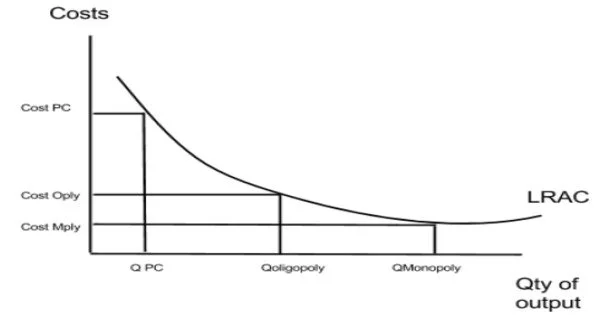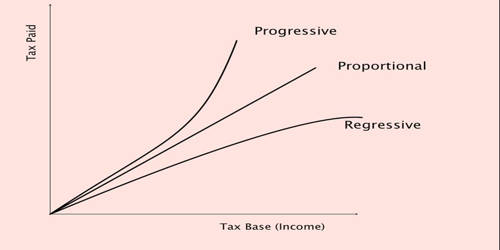In a particular market, a natural monopoly exists if a single firm can serve that market at a lower cost than any combination of two or more firms. It is a monopoly in an industry where high infrastructure costs and other entry barriers relative to market size give the largest supplier in an industry, often the first supplier in a market, an overwhelming advantage over potential competitors. It is a type of monopoly that exists typically as a result of the high start-up costs or large economies of scale associated with conducting business in a specific industry, which can result in significant barriers to entry for potential competitors.
Natural monopolies can form in industries that require specialized raw materials, technology, or other factors to function. An industry is a natural monopoly if the total cost of one firm producing total output is less than the total cost of two or more firms producing total output. This is common in industries where capital costs are high, resulting in large economies of scale based on market size; examples include public utilities such as water services, electricity, telecommunications, mail, and so on.
Natural monopolies can also occur when one firm is far more efficient than multiple firms in providing the market with the good or service. A good example of this is the electricity transmission industry, where once a grid is set up to deliver electricity to all of the homes in a community, putting in a second, redundant grid to compete makes little sense.
Because of scarcity of resources, economies of scale, and the breadth of economic benefits. As a result, the likelihood that a company that provides a single product and service or a company that jointly provides the majority of products and services will form a company (monopoly) or a small number of companies (oligopoly) is high.
Tap water is an example of a natural monopoly. Because the capital costs of establishing a national network of pipes and sewage systems are very high, it makes sense to have only one company provide a network of water pipes and sewers. It makes no sense to have two different companies providing water because the average cost would be very high compared to just one firm and one network. It would also be inconvenient to have two companies dig up the road to lay a duplicate set of water pipes.
A natural monopoly develops as a result of market conditions rather than any unfair practice. It is rare these days, but it can be found in industries that rely on natural resources such as rivers, minerals, mountains, geographical locations, and physical locations. Natural monopolies were identified as potential sources of market failure as early as the nineteenth century, and John Stuart Mill advocated for government regulation to force them to serve the public good.
















